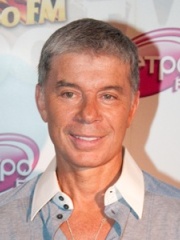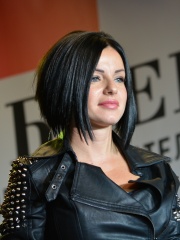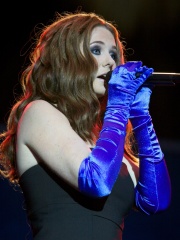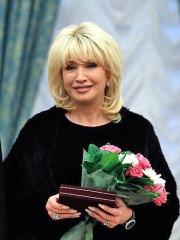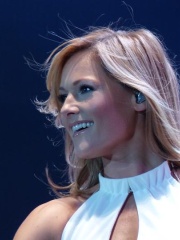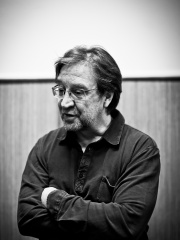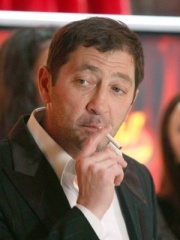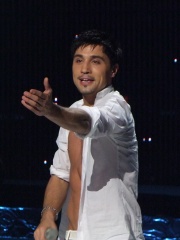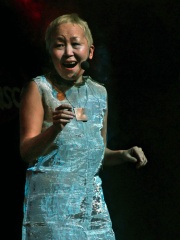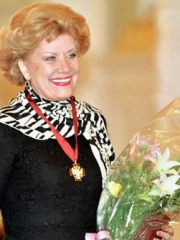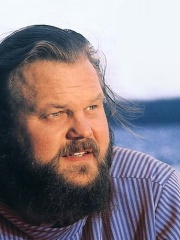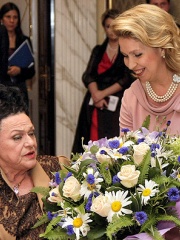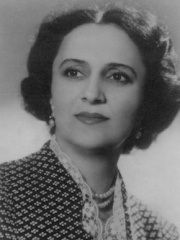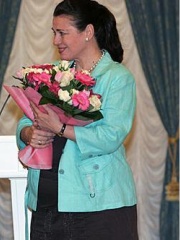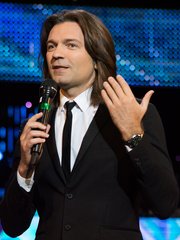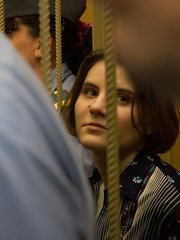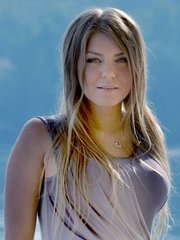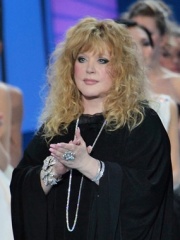
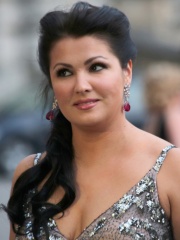
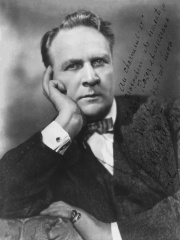
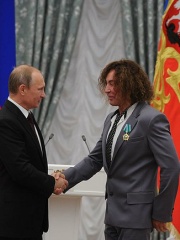
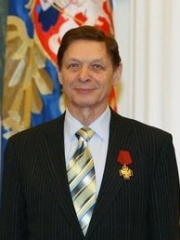
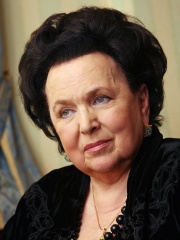
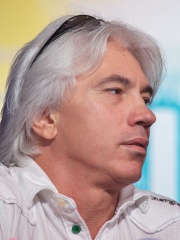
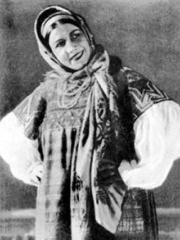
The Most Famous
SINGERS from Russia
Top 10
The following people are considered by Pantheon to be the top 10 most legendary Russian Singers of all time. This list of famous Russian Singers is sorted by HPI (Historical Popularity Index), a metric that aggregates information on a biography's online popularity. Visit the rankings page to view the entire list of Russian Singers.

1. Alla Pugacheva (b. 1949)
With an HPI of 73.11, Alla Pugacheva is the most famous Russian Singer. Her biography has been translated into 97 different languages on wikipedia.
Alla Borisovna Pugacheva (Russian: Алла Борисовна Пугачёва, IPA: [ˈalːə bɐˈrʲisəvnɐ pʊɡɐˈtɕɵvə]; born 15 April 1949) is a Russian singer and songwriter. Her career began in 1965 and continues to this day, although she retired from performing in 2010 after the international concert tour "Dreams of Love". For her "clear mezzo-soprano and a full display of sincere emotions", she enjoys an iconic status across the former Soviet Union as the most successful Soviet performer in terms of record sales and popularity. For several decades, Pugacheva was a sex symbol, a style icon, an inspiration for Soviet women and a heroine of Russian tabloids. In the media, Pugacheva has been called "the Queen of Russian pop music". Pugacheva is one of the few Russian performers who has achieved international success, along with Anna Netrebko and t.A.T.u. Some Russian publications have suggested that she would not be welcome to return to Russia. Her repertoire includes over 500 songs in Russian, English, German, French, Kazakh, Hebrew, Finnish and Ukrainian, and her discography has more than 100 records, CDs and DVDs. In addition to Russia and the former Soviet Union, Pugacheva's albums have been released in Japan, Korea, Sweden, Finland, Germany, Poland, Czechia, Slovakia, Bulgaria and Israel. In total, she has sold more than 250 million records. Her debut album, Mirror of the Soul, has sold 10 million copies. Pugacheva's other albums were also successful, including How Disturbing Is This Way, released in 1982, which sold 7 million copies. During her career, Pugacheva has toured Eastern Europe, the Baltic states, Scandinavia, Central Asia and other countries around the world, including the United States, United Kingdom, France, Netherlands, Greece, Italy and Israel. She has performed in some of the most famous concert halls in the world, including Carnegie Hall in New York, Olympia in Paris, Friedrichstadt-Palast in Berlin, Royal Theater Carre in Amsterdam and Apollo in London. In addition to Russia and the countries of the former USSR, Pugacheva's singles were included in the hit parade in other countries of Europe and Asia, including France, Sweden, Poland, Greece, Japan and Mongolia.The singles "Harlequin" and "А Million Scarlet Roses" are her main international hits. In 1988, Billboard noted that Pugacheva “ranks with such great musicians of all time as Bing Crosby, Elvis Presley and Michael Jackson. In 2000, The New York Times called her "the goddess of Russian pop music, Moscow's Tina Turner with a touch of Édith Piaf". She became a People's Artist of the USSR in 1991, a Laureate of the State Prize of the Russian Federation in 1995. In addition to state awards, Pugacheva was awarded regional and international music prizes. She has received awards in several countries around the world, including the United States, Germany, Finland, Poland, Bulgaria, Ukraine, Belarus, Azerbaijan, Armenia and the Ampex Golden Reel Award, among others. Pugacheva was recognized as the best singer of the 20th century in Eastern Europe by the ZD Awards, named a living legend and the best performer of the 1990s decade by the Ovation Award. In 2017, she was included in the list of "100 most influential Russians of the century" according to Forbes, along with Mikhail Gorbachev, Yuri Gagarin and Pavel Durov. In 2022, she was among three Russian women included in the BBC's 100 Women list. Pugacheva was inducted into the Top Hit Music Awards Hall of Fame. For several decades, Pugacheva had the largest fee among performers in Eastern Europe. Due to her many years of popularity in Eastern Europe and Central Asia, Pugacheva was compared by the media to Madonna, and she received the nickname Russian Madonna. In addition to her career on the music stage, she starred in films and musicals, voiced films and recorded soundtracks. Pugacheva is considered a gay icon, and in 2012 she supported the punk group Pussy Riot. She was a UNICEF Goodwill Ambassador from 1998 to 2007.

2. Anna Netrebko (b. 1971)
With an HPI of 71.96, Anna Netrebko is the 2nd most famous Russian Singer. Her biography has been translated into 161 different languages.
Anna Yuryevna Netrebko (Russian: Анна Юрьевна Нетребко; born 18 September 1971) is a Russian operatic soprano who has performed at the Salzburg Festival, Metropolitan Opera, Vienna State Opera, the Royal Opera and La Scala. Discovered and promoted by Valery Gergiev, she began her career at the Mariinsky Theatre, collaborating with the conductor in the theater and performances elsewhere. She was noticed globally after playing Donna Anna in Mozart's Don Giovanni at the 2002 Salzburg Festival. She had been known for her rendition of lyric and coloratura soprano roles, yet later proceeded into heavier 19th-century romantic roles, such as Leonora in Il trovatore and the role of Lady Macbeth in Macbeth. Since 2016, she has turned her focus to verismo repertoire. She has been an exclusive artist for Deutsche Grammophon since 2003. She has won multiple Echo Klassik Awards, and was included on the Time 100 list in 2007. She was named a People's Artist of Russia in 2008, and an Austrian Kammersängerin in 2017.

3. Feodor Chaliapin (1873 - 1938)
With an HPI of 68.40, Feodor Chaliapin is the 3rd most famous Russian Singer. His biography has been translated into 52 different languages.
Feodor Ivanovich Chaliapin (Russian: Фёдор Ива́нович Шаля́пин, romanized: Fyodor Ivanovich Shalyapin, IPA: [ˈfʲɵdər ɨˈvanəvʲɪtɕ ʂɐˈlʲapʲɪn]; 13 February [O.S. 1 February] 1873 – 12 April 1938) was a Russian opera singer. Possessing a deep and expressive bass voice, he enjoyed an important international career at major opera houses and is often credited with establishing the tradition of naturalistic acting in his chosen art form.

4. Valery Leontiev (b. 1949)
With an HPI of 68.13, Valery Leontiev is the 4th most famous Russian Singer. His biography has been translated into 129 different languages.
Valery Yakovlevich Leontiev (Russian: Валерий Яковлевич Леонтьев; born 19 March 1949) is a Russian singer, songwriter and actor, whose popularity peaked in the 1980s and 1990s. He was titled a People's Artist of Russia in 1996. During his career, he achieved international success in Eastern Europe, has the status of a pop icon along with Alla Pugacheva, and is a winner of ZD Awards. In 1993, Leontyev headlined the Voice of Asia festival, along with Boney M and Gloria Gaynor. Over the course of his decades-long career, he has recorded more than 30 albums, many of which sold millions of copies. The media refers to Leontiev as a megastar and a legend of the Russian pop.
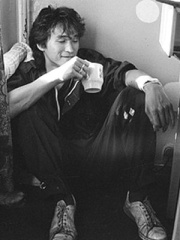
5. Viktor Tsoi (1962 - 1990)
With an HPI of 67.15, Viktor Tsoi is the 5th most famous Russian Singer. His biography has been translated into 70 different languages.
Viktor Robertovich Tsoi (Russian: Виктор Робертович Цой, IPA: [ˈvʲiktər ˈrobʲɪrtəvʲɪtɕ ˈtsoj]; 21 June 1962 – 15 August 1990) was a Soviet singer-songwriter and actor who co-founded Kino, one of the most popular and influential bands in the history of Russian music. Born and raised in Leningrad (modern-day Saint Petersburg) to a Russian mother and Koryo-saram father, Tsoi started writing songs as a teenager. Throughout his career, Tsoi contributed a plethora of musical and artistic works, including ten albums. After Kino appeared and performed in the 1987 Soviet film Assa, the band's popularity surged, triggering a period referred to as "Kinomania", and leading to Tsoi's leading role in the 1988 Kazakh new wave art film The Needle. In 1990, after a high-profile concert at Moscow’s Luzhniki Stadium, Tsoi briefly relocated to Latvia with bandmate Yuri Kasparyan to work on the band's next album. Two months after the concert, Tsoi died in a traffic collision. Widely regarded as the Jim Morrison of the Soviet Union, Tsoi was one of the most important pioneers of rock music in Russia and is credited with popularizing the genre throughout the Soviet Union. Becoming popular by combining his music and lyrics with philosophy, he retains a devoted following throughout the former Soviet Union, where he is known as one of the most influential and popular people in the history of Russian-language music.

6. Eduard Khil (1934 - 2012)
With an HPI of 66.51, Eduard Khil is the 6th most famous Russian Singer. His biography has been translated into 40 different languages.
Eduard Anatolyevich Khil (Russian: Эдуард Анатольевич Хиль, Russian pronunciation: [ɨdʊˈart ɐnɐˈtolʲjɪvʲɪtɕ ˈxʲilʲ]; 4 September 1934 – 4 June 2012), often anglicized as Edward Hill, was a Russian baritone singer. Khil became known to international audiences in 2010, when a 1976 clip of him singing a non-lexical vocable version of the song "I Am Very Glad, As I Am Finally Returning Back Home" (Russian: "Я очень рад, ведь я, наконец, возвращаюсь домой", romanized: "Ya ochen' rad, ved' ya, nakonets, vozvrashchayus' domoy") became an Internet meme, often referred to as "Trololol" or "Trololo", or as the "Russian Rickroll", and the song became associated with Internet trolling. The song's newfound prominence in Internet culture led him to adopt Mr. Trololo as a stage name.

7. Galina Vishnevskaya (1926 - 2012)
With an HPI of 64.39, Galina Vishnevskaya is the 7th most famous Russian Singer. Her biography has been translated into 45 different languages.
Galina Pavlovna Vishnevskaya (Russian: Галина Павловна Вишневская, née Ivanova, Иванова; 25 October 1926 – 11 December 2012) was a Russian soprano opera singer and recitalist who was named a People's Artist of the USSR in 1966. She was the wife of cellist Mstislav Rostropovich, and mother to their two daughters, Olga and Elena Rostropovich.

8. Dmitri Hvorostovsky (1962 - 2017)
With an HPI of 62.09, Dmitri Hvorostovsky is the 8th most famous Russian Singer. His biography has been translated into 40 different languages.
Dmitri Aleksandrovich Hvorostovsky (Russian: Дми́трий Алекса́ндрович Хворосто́вский, pronounced [xvərɐˈstofskʲɪj]; 16 October 1962 – 22 November 2017) was a Russian operatic baritone.

9. Lidia Ruslanova (1900 - 1973)
With an HPI of 61.68, Lidia Ruslanova is the 9th most famous Russian Singer. Her biography has been translated into 43 different languages.
Lidia Andreyevna Ruslanova (sometimes spelt Lidiya or Lydia, Russian: Лидия Андреевна Русланова; 27 October 1900 in Saratov Governorate – 21 September 1973 in Moscow) was a performer of Russian folk songs.
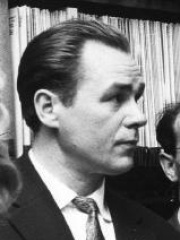
10. Georg Ots (1920 - 1975)
With an HPI of 60.83, Georg Ots is the 10th most famous Russian Singer. His biography has been translated into 23 different languages.
Georg Ots (21 March 1920 – 5 September 1975) was an Estonian baritone. He sang at the Estonian National Opera from 1951 until his death in 1975. Ots gained wider recognition with his roles at the Bolshoi Theatre, particularly with his lead role in Tchaikovsky's Eugene Onegin with Galina Vishnevskaya as Tatyana. He was also celebrated for his performance in Mister Iks, based on Imre Kálmán's operetta Die Zirkusprinzessin.
People
Pantheon has 98 people classified as Russian singers born between 1832 and 2003. Of these 98, 72 (73.47%) of them are still alive today. The most famous living Russian singers include Alla Pugacheva, Anna Netrebko, and Valery Leontiev. The most famous deceased Russian singers include Feodor Chaliapin, Viktor Tsoi, and Eduard Khil. As of April 2024, 9 new Russian singers have been added to Pantheon including Dmitry Malikov, Natali, and Katya Lel.
Living Russian Singers
Go to all RankingsAlla Pugacheva
1949 - Present
HPI: 73.11
Anna Netrebko
1971 - Present
HPI: 71.96
Valery Leontiev
1949 - Present
HPI: 68.13
Oleg Gazmanov
1951 - Present
HPI: 58.24
Julia Volkova
1985 - Present
HPI: 58.15
Lena Katina
1984 - Present
HPI: 57.80
Irina Allegrova
1952 - Present
HPI: 57.63
Helene Fischer
1984 - Present
HPI: 56.97
Yuri Shevchuk
1957 - Present
HPI: 56.77
Grigory Leps
1962 - Present
HPI: 56.53
Dima Bilan
1981 - Present
HPI: 55.79
Sainkho Namtchylak
1957 - Present
HPI: 54.69
Deceased Russian Singers
Go to all RankingsFeodor Chaliapin
1873 - 1938
HPI: 68.40
Viktor Tsoi
1962 - 1990
HPI: 67.15
Eduard Khil
1934 - 2012
HPI: 66.51
Galina Vishnevskaya
1926 - 2012
HPI: 64.39
Dmitri Hvorostovsky
1962 - 2017
HPI: 62.09
Lidia Ruslanova
1900 - 1973
HPI: 61.68
Georg Ots
1920 - 1975
HPI: 60.83
Elena Obraztsova
1939 - 2015
HPI: 60.75
Martti Talvela
1935 - 1989
HPI: 59.82
Lyudmila Zykina
1929 - 2009
HPI: 59.22
Zara Dolukhanova
1918 - 2007
HPI: 58.38
Valentina Tolkunova
1946 - 2010
HPI: 58.37
Newly Added Russian Singers (2025)
Go to all RankingsDmitry Malikov
1970 - Present
HPI: 45.42
Natali
1974 - Present
HPI: 44.52
Katya Lel
1974 - Present
HPI: 44.46
Julia Lezhneva
1989 - Present
HPI: 43.25
Yekaterina Samutsevich
1982 - Present
HPI: 42.77
Marina Lizorkina
1983 - Present
HPI: 41.10
Oksana Pochepa
1984 - Present
HPI: 38.64
Mot
1990 - Present
HPI: 37.19
Klava Koka
1995 - Present
HPI: 37.15
Overlapping Lives
Which Singers were alive at the same time? This visualization shows the lifespans of the 25 most globally memorable Singers since 1700.

